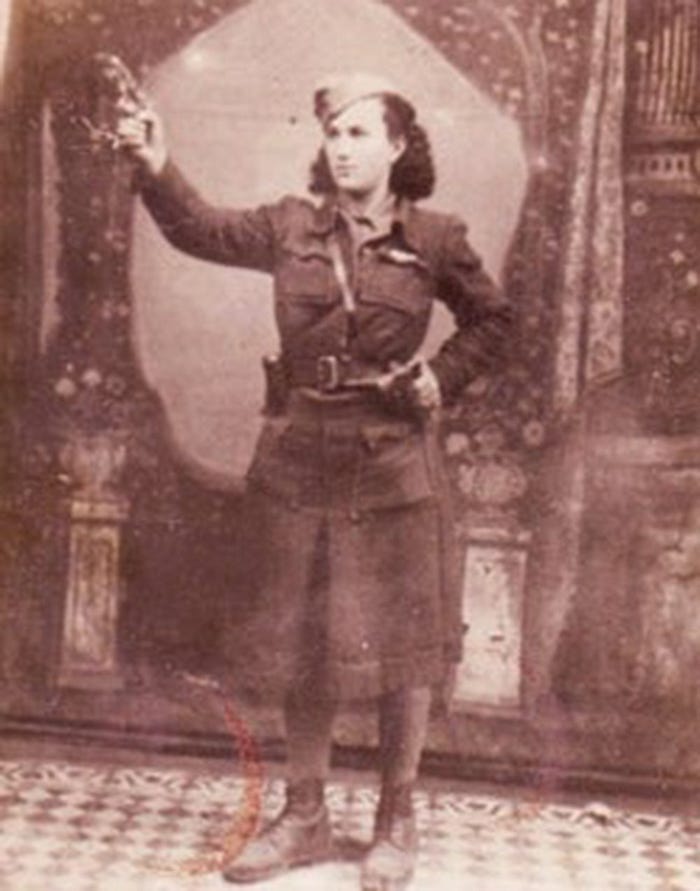“Do you know who Yehudis was?” I asked my nine-year-old son.
He said, “Yes, she’s the woman that chopped off the general’s head.” Surprised and proud, I chuckled at his matter-of-fact depiction of this epic woman.
That was all I knew about Yehudis as well. We should all know more about this selfless and courageous woman. Venturing online to read about Yehudis’s feat filled my heart with awe.
To learn more about this story, click here:
https://www.chabad.org/holidays/chanukah/article_cdo/aid/103019/jewish/The-Story-of-Yehudit.htm
I know of many more brave Jewish women who, like Yehudis, resisted and fought against powerful men whose sole aim was to destroy the Jewish nation.
I am honored to shine a light upon these women and recount their stories. So this Hannukah ( a Jewish holiday), as we add another candle to our Menorah ( candelabra) each night, I will share what I’ve learned about other women who, like Yehudis, did not remain passive and quiet.
Instead, they stood up and put their life on the line with courage and faith, fighting for Jewish survival and continuity.
Tonight’s the first night of Hannukah, and our menorahs are ready. The children hold their colorful candles in their tiny hands while smiling and wondering how generous their parents will be with Hannukah gelt (traditional holiday money given to children) this year.
Let’s stay in character and travel to Greece…
Tonight, we honor Sara Yehoshua.
Sara Yehoshua, also known as Sarika, was born in 1927 in Chalkis, a small town not far from Athens. After losing her father as a baby, she enjoyed a happy childhood with her mother. Born and bred in Greece and identifying as such, she expressed her Jewishness by lighting candles every Friday night and attending services on Jewish holidays.
When the Nazis arrived in her town in 1941, life as she knew it took a sharp turn. Sara and her mother avoided unwanted attention by living discreetly among their civilian counterparts.
However, in 1943, life for Greek Jews became increasingly dangerous, pushing them to flee to a small village. Once again, the arrangement proved unsafe; Sara left her mother in hiding with kind villagers and decided it was time to confront the enemy. She was only 16 years old.
Sara joined the Greek resistance movement against their German occupiers. Her mission was to recruit and train other young women within the resistance.

In an interview, Sara later related how she had to train these young and inexperienced girls, who often laughed in disbelief about using firearms. However, with patience and persistence, she turned them into fearless fighters who would bravely endanger their lives to defeat their evil oppressors.
Sara fought to strategically distract and distance German soldiers from areas so other resistance soldiers could attack. They burned down houses and killed Nazi collaborators.
She was widely successful in her efforts but received very little recognition from her male comrades, who were baffled by the strength and courage of these young women.
At 18, she was known as “Captain Sara” and continued to fight in the movement until their liberation in 1944.
After the war, Greece remained under political unrest, and Sara’s resistance movement pivoted towards the opposition of the Greek government. As a result, she was arrested for a short period. Upon release, she migrated to Israel, where she married and lives until today.
Sara may have yet to receive credits where it was due, but tonight, we tell the story of Sara Yehoshua, admiring her bravery and strength.
To Sara and all the brave women out there. May we know them, may we be them.
